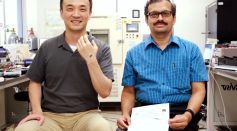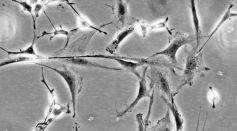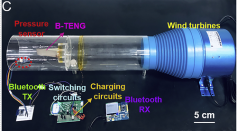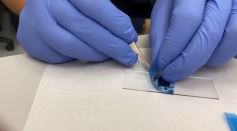NANOTECHNOLOGY

Scientists Successfully Made Unique Chameleon-Like Artificial Films, Displays
Researchers Use Gold Nanorods To Distinguish Between "Killer" and "Healer" Cells
Scientists Discover Shortest Ever Time Measurement: ’247 Zeptoseconds’
Establishing Connections Between Gut and Brain Symptoms

Scientists Develop a Micro-Supercapacitor Made of Graphene Ink

Giving Cells a "Squeeze" Makes Them Divide Faster

The Future of NANO Type Hearing Aids: What Research Says

Microneedle Patch Can Deliver Genetic Material to Target Defective Cells

B-TENG Device: Tiny Wind Turbine Harvets Energy From a Breeze
Researchers Discover Novel Method for Creating Colloidal Diamonds
German Scientists Design World's Smallest Ultrasound Detector
Researchers Develop Carbon Nanotube Water Filters

Scientists Measure Fever in Worms Using Quantum Thermometer With Nanodiamonds

Physicists Develop Nano-Sized SQUID Capable of Detecting Extremely Faint Magnetic Fields
Most Popular

Can Tesla Solar Roof and Powerwall Fully Power Your Home with Reliable Energy?

Inside Snow Clouds: How Ice Crystals Form and Create Heavy Winter Snowfall Patterns

Newly Discovered Planet That Literally Rains Diamonds Across Its Surface

Carbon Sequestration Explained: How Trees Fight Climate Change and Build Long‑Lasting Forest Carbon Stores





